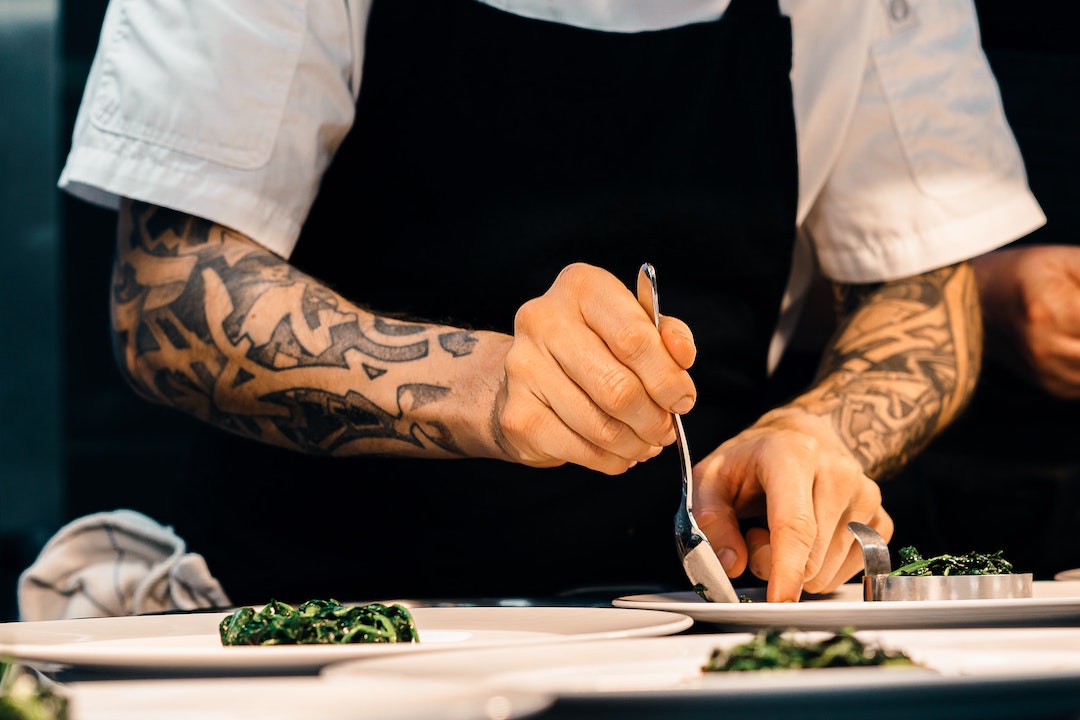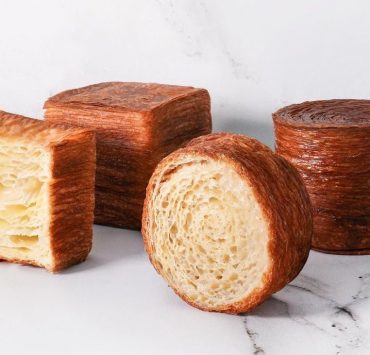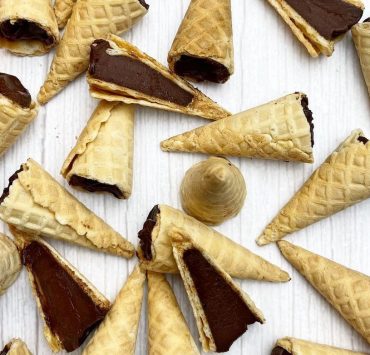Even though I write about food literally all the time, I don’t consider myself a food writer. There’s a distinction to be made between food writers and people who write about food (me). Like with making food, there’s an art to writing and talking about it. According to Stephen King, “You simply become a writer by reading and writing.” When applied to food writing, it translates to “You simply become a food writer by reading, writing, and eating.”
I have done a lot of the latter two (with the last one being extensively documented through the second one), but the reading aspect of it all is a little intimidating. There are hundreds and hundreds of resources to learn more about food writing or just plain talking about food, but where does one even begin?
While many people still consider the written word the pinnacle of food criticism, other forms of media like podcasts and documentaries can still offer lots of important lessons. To better educate myself, I sought the guidance of people who are right in the thick of it—chefs and other food industry insiders.
Under the guise of writing an article, I asked chefs from all over Manila and a few of my friends who work in the F&B world what they’d recommend to people who want to make it in the food industry and people who just love food.
So according to F&B insiders, here are a few things you should add to your media-to-consume list.
Documentaries
Food, Inc. (2008)
I saw this documentary in my Famine, Hunger, and Food Security course for my MA way back in 2010. It redefined the way I think about food, consume it, and eventually, laid the foundation to what Half Saints is today. Everyone should watch this documentary because it is relevant until today. Not much has changed in our food systems even if it has been ten years since the documentary was made.
Monsanto still controls the seeds, indigenous peoples are still forced to sell or give up their land to big corporations, the poor can only afford unhealthy and ultra-processed food, and the number of people with heart diseases, diabetes, and cancers keep increasing. It explains and reveals shocking truths about the politics behind food industrialization and you begin to understand that all this is designed by a handful of people and this is funded, not merely supported, by the government.
Although this revolves around the U.S. food system, one can easily dig deeper on how the Global South is affected by policies in the U.S. You go to a supermarket and you are presented with tens of thousands of choices, but in reality, the decisions towards our health and food consumption were already made for us. I wish there were a Philippine version of this.
Christine Roque
Restaurateur and co-owner, Half Saints
Sergio Herman: Fucking Perfect (2015)
It’s a great look into a fulfilling career, ups and downs and work-life balance and the issues the craft creates. [The documentary] follows Sergio on the emotional closure of his 3-star restaurant and their journey opening another.
Josh Boutwood
Head chef, The Test Kitchen
Barbecue (2017)
I recommend “Barbecue” because at its root, cooking brings us all together. This is the most basic of methods. Meat and flame. It’s just amazing how in different cultures barbecue always acts as a gathering point.
Denny Antonino
Owner and head chef, Papa Bear La Union
Books
“The Flavor Bible” by Andrew Dornenberg and Karen Page
For food lovers or aspiring F&B professionals, I would highly recommend the book “The Flavor Bible” by Andrew Dornenberg and Karen Page. It’s a reference book which I’ve always thought of as the food thesaurus. It’s always out on my work table and one of the essentials for recipe development. It’s also great for getting those creative juices flowing when you’re feeling stuck.
Raeanne Young Sagan
Owner and head baker, Hey Pie People
“Philippine Herbs: For Healthy Cooking, Common Cures, and Concoctions” by Domingo Madulid, Michaela Fenix, Jaime Galvez Tan, Josefa C. Reyes
This is your encyclopedia and recipe book of indigenous herbs in the Philippines. Perhaps half of the 80 plants listed here, you might not have even heard of or cooked with, which makes it a fascinating read. Each herb/plant is presented with a beautiful illustration and photo, [and] a brief description with a particular focus on its medicinal use.
Christine Roque
Restaurateur and co-owner, Half Saints
Podcasts
“The Sporkful”
It’s not for foodies, it’s for eaters—driven by stories of people to have a deeper understanding of food. Stories are well-researched and unconventional. I love that it is well-edited and concise. No blabbering. Just straight-up great story-telling. My favorite episodes are: Data-driven restaurant make-over, Aleppo Sandwich, David Chang, Reckoning of Bon Appetit.
Christine Roque
Restaurateur and co-owner, Half Saints
“The Food Programme” – BBC Radio 4
[It’s] the only news-oriented interview format program I found that dedicated coverage of the pandemic [and] the ups and downs of the lockdown from different lenses and perspectives in the food industry. The program is produced the “old-school” radio way. This is the “boring” that I want to listen to. Unfussy with that calm British news tone, unexaggerated, and factual.Christine Roque
Restaurateur and co-owner, Half Saints
Online Communities
Demi Community
Demi Community is a food-centric messaging platform where you sign up (for $10 a month) to be a part of any of their roster of food communities led by chefs or food & bev experts (mostly in New York City). It used to be a WhatsApp group, but it’s slowly pivoting to the Demi Community App just this week. Here you can directly talk to and exchange all things food and culture directly with the chefs and food people you look up to together with like-minded folks.
In a time of food media saturation, Demi community found a way to bring communities closer and more connected through an intimate group chat and establish connection between restaurants, chefs, and like-minded folks. You also get to pick your host from this roster.
Trisha Katipunan
Recipe developer




